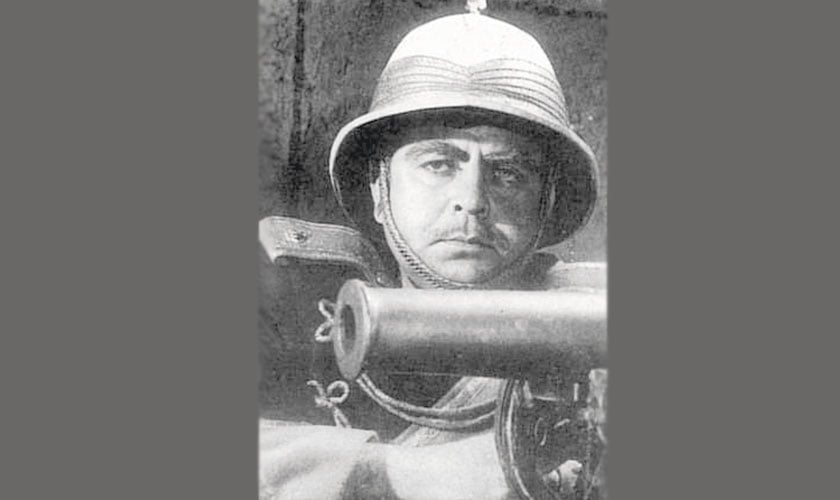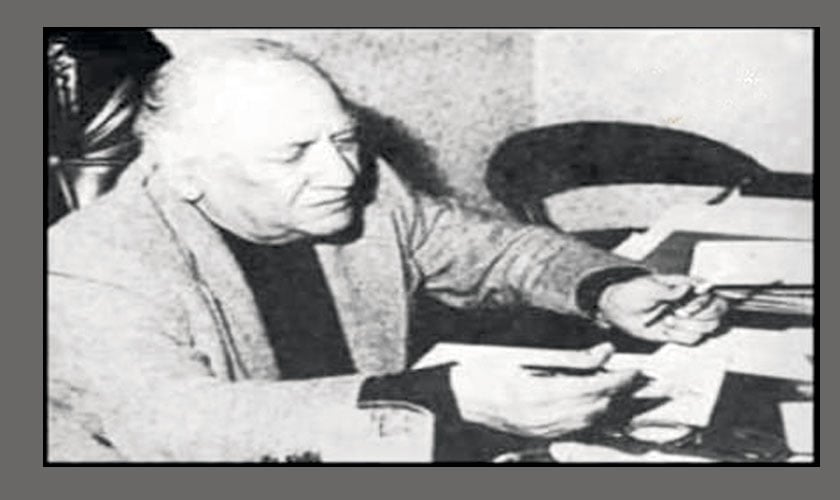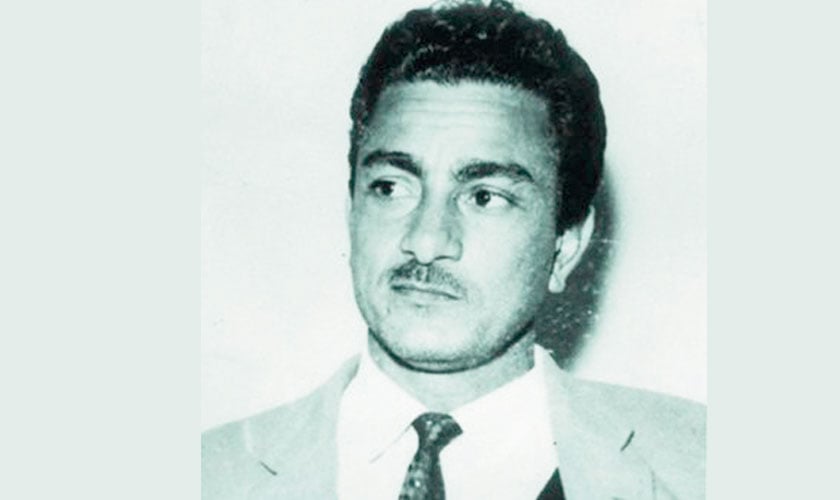An imperialist government destroys a village, belonging to one of its artillerymen, just to make a road. The topchi rebels and leads a revolution. All ‘imperial’ plans are thwarted when people rise to the occasion. ‘Mother’ is shown as a savior, who doesn’t hesitate in killing her ‘traitor’ son. This was the story of Farangi, one of the greatest films produced in Pakistan, an eye opener in many ways, and relevant even today.
CinemaScope
Instep revisits Farangi, one of the greatest films produced in Pakistan.
An imperialist government destroys a village, belonging to one of its artillerymen, just to make a road. The topchi rebels and leads a revolution. All ‘imperial’ plans are thwarted when people rise to the occasion. ‘Mother’ is shown as a savior, who doesn’t hesitate in killing her ‘traitor’ son. This was the story of Farangi, one of the greatest films produced in Pakistan, an eye opener in many ways, and relevant even today.
Directed and produced by the visionary Khalil Kaiser, the story was written by the legendary Riaz Shahid. A journalist-turned-screen writer, Shahid was associated with Lail-o-Nahar, before it was confiscated by the Ayub regime.

It was a different world in 1964. USA had a history of regime-engineering through the CIA. The elected governments of Iran and Guatemala were toppled in early 50s, but Fidel Castro of Cuba resisted the Bay of Pigs Invasion. The 1962 Missile Crisis brought the world to the brink of first nuclear war. A US ally, Pakistan was bound to look in the eye of communist USSR. Ayub’s ‘decade of development’ was in full bloom. There was heavy dependence on foreign capital for industrialization, but sadly ‘aid’ covered 66 per cent of the cost of imports. The press needed to be in chains, with campaigning for upcoming Presidential elections in full swing. Ms. Fatima Jinnah agreed to become the opposition’s candidate against Ayub and here is when he called Madr-e-Millat, an Indian agent.
The dynamic team of Riaz Shahid, Khalil Kaiser and Rasheed Attre had given Shaheed (1962) that brought the Middle East crisis on screen for the first time.
In the current scenario, a subject closer to home was picked. Farangi had everything the regime was against. Drawing a caricature of powerful political and social figures of the time, the film featured action hero Sudhir as ‘Akbar Khan’, who was a major figure in the Rawalpindi Conspiracy of 1951.

Mazhar Shah was his nemesis, Nadir, who resembled Ayub Khan in demanour and physicality. The famous ghazals of Faiz including ‘Gulon Mein Rang Bhare’ (sung by Mehdi Hasan) and ‘Hum jo tareek raho’on me mare gaye’ were also used. The latter was inspired by the letters of Ethel and Julius Rosenberg, who were executed in US for unproven charges of spying in 1953.
Bollywood giant Sahir Ludhianvi’s famous ghazal Aaj, with lines, ‘mujhko aman aur tehzeeb ki bheek do’, was tweaked to be used in the film. Sahir read it at ‘All India Radio’ in September 1947, after witnessing the brutal partition. Sung by Ahmed Rushdi and picturised on Allauddin in the role of a shepherd, it had a lasting effect with the destroyed village in the background.
Agha Talish as the ruthless Farangi was unmatchable. Shamim Ara as Gul and Bahar Begum as Akbar’s wife Zeba also played their roles with ease while senior actress Safia Moini was featured as the mother of Nadir Khan.

The film begins in the Army Captain’s office, where Akbar asks for a week’s leave. At his return, he is forced to witness the destruction of his village by the ‘Farangi’. He manages to escape, but rebels and starts disrupting British plans. Miraculously, Akbar’s son and wife survive, but Gul loses her eye sight.
There is a scene when Farangi ties Gul’s father, played by veteran actor Saqi, to a cannon and demands Akbar’s whereabouts before his countdown ends. At the culmination of numbers, Gul asks politely, ‘Tope chalnay ki awaaz nahi aayi Farangi’.
Akbar’s son becomes the Achilles heel for the protagonist. Nadir in turn wanted to harm the ‘boy’, but is prevented from doing so. Bahar, the mother dies uttering the words: ‘Main maan hoon, aulad ki deevar hoon, koi goli mere bachchay tak nahi pohanch sakti’.
In a bid to please his masters, Nadir hands over the boy to his own mother. A strong Pathan lady, she shoots Nadir when she learns that he might hand him over to British. Eventually, Gul becomes the guardian of the boy, who keeps her away from further harm. In the climax, her eyesight is miraculously restored during Nur Jehan’s rendition of ‘Tere Zaat hai Mazhar-e-Noor-e-Khuda’.
A lot more happens in the film. Farangi, now a Major, is killed after a short speech that is actually delivered by Riaz Shahid, who is addressing the Imperialist forces.
The film was released just few weeks before the Presidential Elections. Some stories suggest that that lanterns (Ms. Jinnah’s symbol for election) were found scattered all over during the premiere that was held in December 1964. Despite having media in its control, Farangi picked up good reviews and was lucky to get four major awards including best screenplay, best actress (Shamim Ara), best lyricist and best singer (Mehdi Hasan).
Riaz Shahid picked issues that were being discussed in the news. Pakistan’s first diamond jubilee film, Zarqa was made on the issue of Palestine. His other films such as Gharnata (based on the downfall of Muslims in Spain) and Yeh Aman (about the Kashmir Struggle) were made after the deaths of both his partners, Khalil Kaiser and Rasheed Attre. The strict censor laws after the Tashkent Accord clipped the wings of writer-director-producer Riaz Shahid, who, hapless and helpless, lost the battle of life at the hands of leukemia in October 1972.